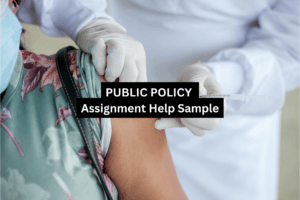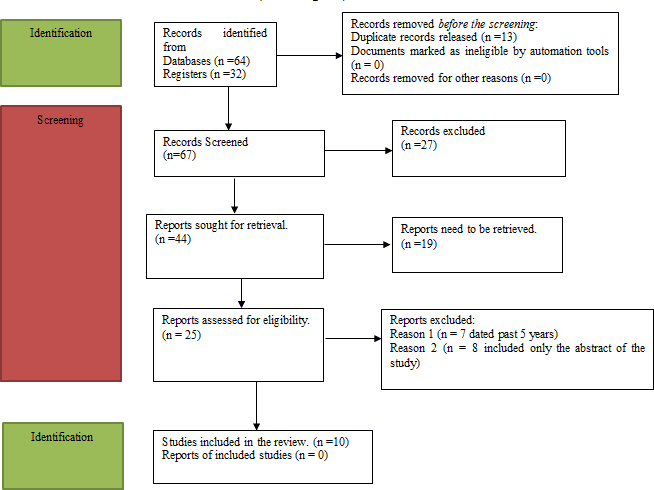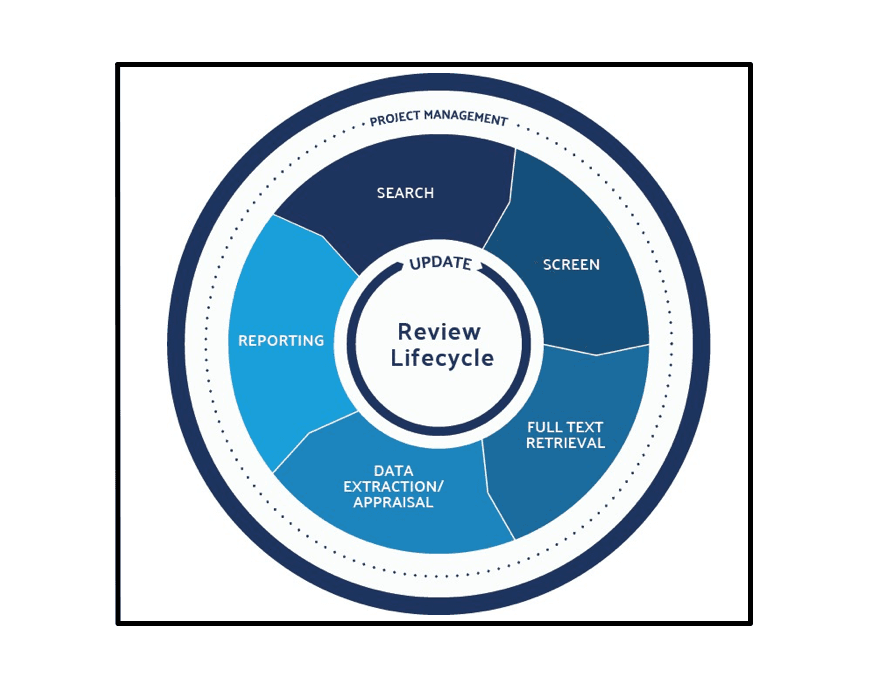Public Health Assignment Help Sample: Community Pharmacy Interventions in Weight Management
- 25 March 2025
- Posted by: OAH
- Categories: Dissertation, Nursing & Healthcare

This Public Health Assignment Help Sample is a systematic review prepared for one of our students in the UK. Systematic reviews are often essential components of larger projects like dissertations, theses, or research publications. This sample serves as an excellent resource for public health and public policy students seeking inspiration for their own assignments. It also reflects our dedication to providing high-quality assignment help to students worldwide.
Need assistance with your public policy assignment? Contact us today for expert support! 😊
Public Policy Systematic Review Sample: Community Pharmacy Interventions in Weight Management

Abstract
A brief overview of the research background has been provided that denotes the importance of this study in current era. Apart from this the necessity of this research has also been justified in the rationale which is meant to justify the effectiveness of this research. The databases used in this research can be considered as a factor behind the rate of success of the research as it allows the researcher in terms of collecting and interpreting most authentic information regarding the topic of the research. Importance of community pharmacies in weight management has been analysed with the help of systematic literature review. This kind of literature review can help to conduct the research systematically.
Table of Contents
CHAPTER 1: INTRODUCTION
1. Introduction
Weight management is a critical approach that can allow an individual to live a healthy life. This study has focused on the role of community pharmacy in the aspects related to weight management approaches. This chapter has been based on the portrayal of the background of the research along with the reason for the selection of this topic. The aim and objectives of its paper have been described in a proper manner that can be useful for understanding the course of this study. Effective usage of research objectives and research questions can be useful for identifying the desired end goal of this research which can generate necessary insights regarding this study. Apart from this, a brief overview of the relevant articles has also been integrated, which is meant to enhance the necessity of this paper in the current era. The overall research structure has also been portrayed through an illustrative figure that can be useful for acknowledging the chronological manner of the selected phases.
2. Background of the Research
The rise of obesity in the current era has gathered a sufficient amount of attention from society due to its contribution to several health issues. Rauberet al. (2020) have also agreed with this concept by stating that the prevalence of obesity can be correlated with the rise of mortality burdens and chronic diseases. It is usual for obese populations to undertake necessary measurements that include pharmaceutical approaches for weight management. This study has been based on the connection between community pharmaceutical interventions and weight management approaches. The role of pharmacy interventions cannot be overlooked in the context of weight management, as pharmacy workers are known for providing suggestions that can allow an individual to maintain a healthy lifestyle. Several studies have suggested that community pharmacists are required to be trained in weight management, which can allow them to help society in weight reduction (Vermaet al. 2021). Hence, this study has focused on the role of community pharmacists as they can guide obese people to maintain a healthy lifestyle.
The use of pharmaceutical approaches can be considered an important aspect of weight management which requires proper attention from society. Integration of pharmaceutical approaches can allow an individual to reduce weight and maintain a BMI rate at the desired level. Apart from dietary changes and integration of physical exercise, the pharmaceutical; approach has also gathered favourable perceptions among the necessity due to its capability in weight reduction initiatives. Several studies have emphasized the pharmacy-specific weight management approach, which has been discussed in this study in a critical manner (Vermaet al. 2019). According to the findings of the WHO (“World Health Organisation”), the number of overweight people has tripled in recent years, which can be reasoned by unhealthy lifestyles and dietary choices. Hence, the contribution of community pharmaceutical approaches cannot be ignored in this context. Pharmacists are often considered an important part of the healthcare institutes that are liable for providing medical care to obese and overweight people.
Also Check this Sample Dissertation
The health service in the UK can be divided into several parts that can be correlated with the aspects related to weight management. According to the statement of Peletidiet al. (2019), community pharmacy in the UK is liable for providing essential service that involves the distribution of medications, guidance and others. These types of approaches can be useful for an individual to maintain a desired lifestyle for reducing weight. These services are often based on the requirement of the UK population, which represents a higher rate of obesity. Hence, it is necessary to understand the contribution of community pharmacists in the UK in the process of weight management. The core aspects of this study also revolve around the idea of formulating a connection between interventions of community pharmacy and weight management practices. Proper portrayal of this connection can be useful for understanding the concept of community pharmacy in the context of UK population.
3. Rationale
Weight management can be addressed as a concerning factor that can be observed among the population in the United Kingdom (UK). A lack of weight management approaches can cause an individual to face severe physical issues such as obesity and other types of harmful effects. Several studies have illustrated that the percentage of obesity in the UK has increased from 52.9% to 64.3% in recent years, which requires prep attention from the health institutes of the current era (Parliament.uk, 2023). The statistical survey has illustrated that around 72% of obese people belong to the black community. The white British population, on the other hand, represents around 64% of the obese community, which can be considered a matter of concern. Apart from adults, children have also been identified as susceptible to obesity which can be reasoned with deprivation. The cases of obesity have also been divided by gender ratio through statistical surveys, where 68.6% of men have been acknowledged as obese, along with 59.0% of women.

Figure 1.3.1: Prevalence rate of obesity in the UK
(Source: Parliament.uk, 2023)
Obesity can be defined as a condition that denotes BMI (“Body Mass Index”) higher than 30. “The Health Survey for England 2021” also depicts that around 25.9% of the population of England can be addressed as obese (Nhs.uk, 2023). A brief guideline and measurement have also been provided by the governing bodies of the UK to help citizens identify their physical status. As per the guideline, 18.5 to 24.9 BMI can be considered a healthy weight; anything higher than that is acknowledged as the overweight or obese range. The importance of weight management also lies in the negative outcome of it. In other words, a lack of weight management methods or steps for reducing obesity can cause severe health issues such as diabetes, heart disease, bowel cancer, strokes and others. Community pharmaceutical interventions can be addressed as a feasible approach that can allow an individual to manage body weight with utmost efficiency. Hence, the importance of pharmaceutical interventions cannot be ignored in terms of weight management aspects.

Figure 1.3.2: Rate of obesity in adults in England from 2015-16 to 2020-21
(Source: Gov.uk, 2023)
Obesity can be considered one of the most critical concerns in the global aspect and plays a vital role in increasing the range of chronic health complications, including cardiovascular, type 2 diabetes and others. The above figure indicates the enhancement in the contents of obesity in current dates in England and resulting in developing issues in the country’s public health. In 2021, the rate of obesity among 18 years old and above citizens accounted for 25.3%, which increased from 22.7% in 2015-16 (Gov.uk, 2023). The represented statistics showcase the condemned issue of obesity, which is directly related to increasing weight in the correlative course of action. However, the Government of the UK is showing a positive commitment to controlling these complications through implementing community-based programs and providing health support at the primary level.
Also read How Person-Centered Care Enhances Nursing Practices: Critical Reflection
Managing weight among populations is one of the most compelling aspects of effectively controlling public health complications. According to Evans and Wright (2020), reducing weight by up to 5% can result in critical health problems, including high blood pressure, cholesterol, and type 2 diabetes, and this perspective is increasing the demand for effective weight management strategies. Community pharmacy intervention is recognised as a new and most successful aspect of controlling weight, especially in community segmentation. Evans and Wright (2020) also stated in their article that community-based pharmaceutical services support individuals in effectively maintaining weight and provide private services that help society control increasing importance in a significant course of action. Community pharmacy intervention service characteristics are therefore considered as a factor which enhances positive intention in the researcher to conduct a study based on this topic.
Hypertension and overweight are interrelated in a critical way, enhancing public health complications in a more condemned way. According to a study conducted by Donald (2022), 37% of obese women and 43% of obese men in the UK have high blood pressure levels, enhancing cardiovascular disease chances. Therefore, providing support to the needy people in the country is the utmost principle for the Government of the UK. Practical courses have been undertaken by the government, among which support pharmacies in providing services at the community level is one of them. Several studies have identified community pharmacy initiatives’ robustness in managing weight in people based on a particular community. The researcher also selected this specific topic to provide positive insight into the services in the UK landscape. The robustness of community pharmacy intervention in maintaining weight among individuals is another compelling reason that attracts the researcher to conduct the following study.
The growing rate of obesity or overweight-related issues in the UK is investigated as a compelling reason behind the growth in the number of community pharmacies in the present day. Wellbeing Training Britain’s 2021 local area drug store labour force study distinguished an expansion in drug specialists from 23,284 in 2017 to 27,406 (Hansard.parliament.uk, 2023). It has been identified that from 2026, all recently graduated drug specialists will have a solution capability, and we will upskill the current labour force. This will give further an open door to the local drug store area to all the more likely help the conveyance of essential consideration. Increasing community pharmacies in the present day and their role in controlling issues regarding overweight is also an influential aspect behind the selection of this particular research.
4. Aimand Objectives
Aim
The present study mainly aimed at identifying the role of community pharmacy interventions in managing weight in the UK landscape.
Objective
- To investigate the principles of community pharmacy intervention in weight management.
- To develop a clear insight into the robustness of community pharmacy in managing public health.
To identify the programs involved in managing weight and related to community pharmacy services. To recognise the effectiveness of community pharmacy initiatives in weight management in the UK landscape.
5. Research Questions
- What principles are involved in community pharmacy interventions relevant to weight management?
- How community pharmacy intervention helps individuals in managing weight?
- What are the initiative programs involved in community pharmacy interventions?
- How effective are community pharmacy interventions in managing weight in the UK landscape?
6. Significance of the Research
The following research consists of the interventions provided by community pharmacies in terms of controlling increasing weight in the UK. Therefore, this study offers a set of principles that are included in the community pharmacy working processes. In this instance, an individual can assess the working procedures involved in the community pharmacies, which attracts them to use those interventions to manage health complications in a practical course of action. This research can enhance the positive intention among the individuals in using the services and maintains health complications in a more significant course of action. Thomson et al. (2019) mentioned in a research article that community pharmacies are improving daily in terms of providing sufficient services at the community level. Therefore, this study can also be considered evidence of the robustness of the interventions in controlling overweight in a significant course of action. This study mainly aimed at the services provided by community pharmacies in the UK and its outcomes in managing weight at the community level. Therefore, the consequences of this research can also be considered a compelling aspect in terms of supporting the systems significantly. In this instance, the study can also provide results according to the effectiveness of community pharmacy interventions in controlling the complication related to overweighting, especially in the UK. The findings of this research can also help an individual understand the relevance of managing weight to keep health more active and the role of community pharmacies in supporting an individual or a community to maintain health more engaged in an effective way.
7. Research Structure

Figure 1.8.1: Structure of the dissertation
(Source: Self-developed)
CHAPTER 2: METHODOLOGY
1. Research Database
The term “research database” can be considered as the source of the evidence used in a particular research to get the desired result from the ongoing research. This particular aspect plays a significant role in the secondary research, which consists of the evidence collection and interpretation from the previous research relevant to the research topic. In this research, Google Scholar, Biomed journals, PubMed, and government websites have been considered the research databases, as most of the evidence regarding the research topic has been collected from these sources.
Justification
Being a medical term-oriented topic, Cochrane Library has also been undertaken as an effective database which provides practical support in gathering and interpreting information to understand the role of community pharmacy interventions in managing weight in a reasonable course of action. In a research article, Hale et al. (2021) mentioned that international research databases consist of several positive pieces of information and provide previous insights that allow a researcher to accumulate the most authentic information regarding the problem-oriented selected topic. Therefore using these sources to gather evidence is most favourable in this research.
2. Key terms and their combinations
BMI | AND | Obesity | OR | Overweight |
Pharmacists in the UK | AND | Community | OR | Community pharmacy intervention |
Table 2.2.1:Boolean operator
BMI
The aspects related to BMI can be defined through the percentage of mass in proportion to the height of an individual. Several studies have illustrated the importance of calculating BMI or “Body Mass Index” to gain specific insights regarding obesity (Hameretal. 2020). The increasing nature of BMI can also be addressed as a crucial factor that denotes the increment in body weight. As per the guidelines of the UK’s health authorities, a BMI higher than 30 can be considered overweight, which needs to be reduced to reduce the scope of undesired health issues (Parliament.uk, 2023). The necessity for calculating BMI should be considered in the current era as it is a scientific approach enabling an individual to supervise his weight gain or loss phase. Following proper guidelines and dietary plans can allow an individual to maintain a desired BMI rate which can be considered a healthy lifestyle.
Obesity
Obesity can be denied as excessive body fat observed in an individual’s body. Several studies have emphasised the fact that the presence of obesity can cause different types of health issues, such as type 2 diabetes, fibrosis and others (Chang et al. 2020). In other words, a higher amount of body fat can be considered the foremost reason behind several health issues that can create problems for an individual to participate in a healthy lifestyle. The increase in body fat can be reasoned by higher energy consumption and lower physical activity. Hence, it is usual for excess energy to be stored as body fat. As per the statistical data, the percentage of obese people has risen in the UK. It has become 28% from 14.9% in prior years (Parliament.uk, 2023). Hence, the healthcare authority of the UK must undertake justified measures to reduce the negative impact of obesity.
Community pharmacy intervention
The intervention of the community pharmacy can be depicted through the valuable approaches that are meant to provide medical support to society. Wu et al. (2021) have addressed the importance of community pharmacists who are liable for engaging in health improvement activities that denote the usage of prescriptions for promoting healthy practices. In other words, community pharmacists can be considered an essential part of the UK’s healthcare system that provides medical guidelines to the population. These types of approaches are often viewed as medical interventions that are meant to improve the livelihood of the people. Lack of proper support from the community pharmacy can prevent society from facing issues which make it an indisposable part of the community.
Also Read Contemporary Issues in Nursing Education: Addressing Modern Medical Educational Challenges
3. Inclusion and exclusion criteria

Figure 2.3.1: PRISMA Framework
Inclusion criteria
- The selection of the articles relevant to the research topic is mainly based on the level of understanding of the topic of the study.
- Only authentic sources have been used to gather and interpret information in this research, such as Google Scholar, PubMed, Cochrane Library, Biomed Journal and accurate government databases.
- Most recently published data in or after 2019 is considered in this research to manage the authenticity of the information used to get the most desired outcomes from the study.
- As mentioned in the above table, a proper evidence-based data extraction process has been followed to control the biases associated with the following research.
Exclusion criteria
- Most of the evidence was represented in its natural form and not tampered with in terms of getting the desired result from the research.
- Information published before 2018 needs to be addressed to maintain the reliability of the research in a more significant way.
- Articles that are not accessible and irrelevant to the topic have been ignored in this research, which is also a factor in managing the quality of the study’s outcomes.
- The articles have been selected with the theoretical dilemma rather than practical aspects, which also helped understand the most authentic information regarding the robustness of community pharmacy intervention in managing weight, especially in the UK.
- Unethical practices have also been rejected in this research to maintain the quality of the study.
4. Critical Appraisal Tools
One of the most essential and efficient appraisal tools of the report is the “Prisma Diagram”. This diagram demonstrates the flow of information through several stages of systematic review. This diagram assists by identifying, incorporating and excluding the number of records. Prisma diagram flow generally sums up the overall screening process by recording numbers obtained from different sources (Selçuk et al., 2019). This table of information works by including information from various sources and often from additional journals. Prisma diagrams should be used in the process of research, and the database search process must be identified. After all the research terms and related limits, there must be a final number of information records in every database. In this diagram, the total number of combined results and information are gathered from all the databases.

Figure 2.4.1: PRISMA Flow diagram
(Source: Page etal., 2021)
For records that are identified through database and manual searching, an exclusion process is done based on the duplicity. After removing the duplicates, a large number of journals are screened (Page et al., 2021). The number can be obtained by subtracting the number from the duplicate removing box from the number of records identified. After screening and exclusion, reports are returned for eligibility. After all the procedures, final reporting is done to get the output.
5. Analytical Approach
Community pharmacy is an attainable pharmaceutical platform that tends to provide healthcare services to a vast number of users. Community pharmacy workers generally provide advice regarding health and its problems in order to develop a health management system in the near future. In order to understand the importance of intervention of community pharmacies in weight management, this report has chosen a “secondary qualitative data collection” method (Korenvain et al., 2020). “Qualitative data collection” is crucial for conducting a qualitative research process that helps to realise individuals’ behaviours, trust and attitudes in a particular context. There are different methods of collecting qualitative data, such as detailed surveys,
group interviews, profound observation and others. Interviews and focus groups are the most natural processes that are used in qualitative healthcare related research. In the interview round, multiple candidates are chosen to realise different aspects of an individual’s beliefs, experiences and inspirations. Qualitative data naturally refers to the data that are collected with profound observations or person-to-person interviews. This sort of data can be classified depending on the features of a thing.
Qualitative data does not contain any numerical value instead it possesses several traits of behaviours and beliefs. In this kind of data collection, there are several images, observations and statements that help to understand a specific person’s inspiration, belief and many more. This research process is an exploration of people’s points of view, exposures and involvement. Qualitative research enables the researcher to evaluate multiple qualitative data collection procedures based on the relevance. Through this data collection method, the primary goal of gathering data can be known for conducting the research. The data from qualitative data collection are utilised to experiment the knowledge of a particular issue of a sure thing or program, experience and relationship of people (Nassaji et al., 2020). A virtual analysis is another variation of a method of collecting data in qualitative research. This data collection in pharmacy practice can aid in understanding the behavioural approach and motives of pharmacy employees, managers, patients and other healthcare experts.
Through this data collection, the role of community pharmacists in managing weight can be known in detail. Even through this method, it is known that pharmacists can assist the patient parties by providing different adequate medications (Choi and Kim, 2019). Through the data collection, obese patients can be treated well using perfect obesity management medications. The pharmacists basically experiment with the patients and suggest proper medication policies. In the process of qualitative data collection, accurate information regarding the patients’ issues, beliefs can be gathered. By this method, community pharmacies and their involvement in weight management can be calculated by counselling the patients. It can be known from the qualitative collection that in higher requirements, the pharmacists connect with the physicians to provide weight management advice to the patients.
CHAPTER 3: RESULTS AND DISCUSSION
1. Introduction
Community pharmacies are crucial for public health improvement in terms of providing several prescriptions and dispensing of diseases. This report has chosen a systematic literature review to analyse the importance of community pharmacies in weight management. A systematic literature review is an academic procedure that objectifies to explain all related literature on the same topic in order to draw conclusions. The study can illustrate the present condition of research on a specific topic. SLR helps to gather information step by step to make the process clear and managing. In SLR, the evidence is made available by repetitive methods of selecting and synthesising.
2. Systematic Literature Reviews
| Source | Methodology | Findings | Significance |
| Thomson et al., 2019 | This research study has used a secondary systematic review to evaluate the effect of community pharmacy on population health. In a systematic review, this research study has included 157 unique primary studies that indicate the number of “community pharmacy initiatives’ that impact positively on the public health outcomes. | Community pharmacies are tending to improve the general health conditions of people by helping in the prevention of diseases. Pharmacies focus on screening methods that are practical in nature. Through the use of screening methods, several individuals were selected for some vulnerable risk factors. Pharmacies in the community can help in understanding literacy regarding cancer detection. Under the variety of cancer detection, much research has shown the necessity of including patients in pharmacy intervention. | Pharmacists provide different training and information regarding the adverse effects of nicotine absorption and tend to liberate people. Community pharmacists are the fundamental health service providers for general patients. Being located in mostly deprived locations, pharmacists are available without pre-appointment. Many research papers have understood the effectiveness of such interventions in improving community health issues. The intervention of pharmacies in community lives can be defined as an agent of promoting prolonged and ailment–free life. |
| Source | Methodology | Findings | Significance |
| Katangwe et al., 2019 | Primary qualitative data analysis. This research study has followed “Nine semi-structured interviews” that have helped to collect qualitative data and information about community pharmacies. In the interview process, this research study has included some essential stakeholders such as general practitioners, community pharmacists, and commissioners. | This research study identified that pre- diabetes management is one of the most significant public pharmacy interventions that has helped the people to improve their health conditions effectively. According to the findings of this research study, the patients reported positive feedback about these community pharmacy interventions for lowering HbA1C and weight loss. The second theme of this study evaluates the setting of community pharmacy that indicates “Diabetes Prevention Programme (DPPs)” has helped the people to improve their health conditions. Moreover, the findings of this research study suggest that community pharmacy was placed effectively to deliver pre-diabetes screening services to the people. On the other hand, these community health interventions required more time and resources. Such an I.T. solution is one of the most resources needed for these public health interventions that will help to improve the health conditions of the people and weight management as well. | In recent times, community health interventions and weight management are the two most important factors that have helped to provide a better lifestyle to the people. According to the study, diabetes is one of the most common health diseases that affects the people in the society. In this regard, pre-diabetes management is one of the most critical community health interventions that have helped to maintain the weight and health condition of the people effectively. |
| Source | Methodology | Findings | Significance |
| Crilly and Kayyali, 2020 | A systematic review is carried out in this study. | After covid-19 expansion, the growth of community pharmacies can be broadly perceived in the healthcare department. In the case of improving public health diseases, pharmacists use digital technologies to understand the hidden reasons and provide prescriptions based on the type of disease. In the role of prescribing medication, community pharmacists address several health issues that are needed to be diagnosed before. In the case of weight management, the pharmacists generally opt for counselling the patients and obtaining information about the patient. In weight management issues, several harmful practices of patients are diagnosed by the pharmacists. Community pharmacies’ advice for avoiding smoking behaviours in order to reduce obesity from the daily routine of obese patients. The use of social media and the internet can make a vast number of people obese. The usage of alcohol is prescribed to shun by cholesterol patients as alcohol is an agent of promoting cholesterol in the human body in a pretty significant way. | Community pharmacies have ethically attempted to improve the health conditions of the underprivileged public in an isolated land. The intervention of pharmaceutical employees can be advantageously perceived as a cost- effective way of developing healthcare services. In the recent time, digital technology plays most effective role in community health programme. Digital innovation in community health has helped to address severe health issues easily. One of the most important facility of digital health innovation is identify the health issues easily through the report of heal diagnosis report. In this regard, generally opt for counselling the patients has helped to overcome severe health issues properly. |
| Source | Methodology | Findings | Significance |
| Newman et al., 2019 | Secondary thematic analysis is adhered to in the research study. | The community pharmacies have enabled the pharmacy workers to implement and maintain an interdisciplinary team to actively work for the improvement of health issues. Pharmacists have helped to develop several health-related strategies by reducing downstream costs. The cost of treatment can be reduced by concentrating mainly on the prohibition of primary stages of chronic diseases. Identification of conditions at the preliminary stage can deduct the cost of treatment processes and enhance the chance of patients quickly revitalising. Clinical services of pharmacists have doubled the availability of medical services to the downtrodden people. A rapid increase in age has coupled the problems of weight management and the deficit of proper physician supply. Issues of weight management can be seen to increase along with the doubling of age as cholesterol levels can increase in expansion of age. The pharmacists have extended several clinical models to provide expanded services to the people. The patients usually prefer to reside within the locality of pharmacists to obtain great exposure. | In several regions, the community pharmacists have progressed their work by including chronic ailment management, several predominant diseases diagnosis and managing. Pharmacies have included different strategies to increase the system and make the development of health conditions. Pharmacists are included in disease management as medical representatives are more inclined to discover other tactics that are not dependent upon medical equipment. There are multiple issues with taking the services of medical pharmacists, including a deficit of medical providers, I.T. management and others. A shortage of medical representative posts can decrease the capability of pharmacy providers to join in medical services. The community pharmacies have built up several patient- oriented medical homes to provide the best services. The Physicians have contributed to the management of the growth of pharmacy services. Drug control can be managed by proper medication provided by experienced medical pharmacists. |
| Source | Methodology | Findings | Significance |
| Hindi et al., 2019 | A systematic public policy review and narrative approach are incorporated into the research study. This can help to record the findings descriptively. | In order to meet the increased demand of patient parties, healthcare organisations have shifted to coordinate with pharmacists. Weight management is such a colossal issue in today’s environment that it can uplift other diseases significantly. Based on the patient requirements, the community pharmacies tend to maintain privacy by implementing separate rooms for specific patients. “Locally commissioned services” can develop in controlling minor disease management, change of lifestyle hacks, misuse of harmful substances and others. The U.K. government has enforced some laws to establish strategies for community pharmacies to improve the line of interaction between pharmacists and patients. Sometimes, the pharmacists find the posts of medical providers to enhance their profile and experience. The governments are advising to recruit new pharmacists as they are more interested as compared to the experienced counterparts. The inhabitants of different countries are more likely to take the advice of community pharmacists for any health problems. | The pharmacists have to be well- trained in the process of approaching patients. Gaining patients’ trust is one of the most essential factors in introducing community pharmacies’ services. Pharmacists are seen to provide practical assistance in controlling weight management in terms of reducing the intake of lipid- protein. Pharmacies and medical organisations must help pharmacists manage the balance of duty and exceeding services. Prior stages of managing cholesterol can be successfully advised by community pharmacists. Pharmacy workers are capable and well–trained in prescribing such minor issues, though weight maintenance is not an easy procedure. In severe cases, the pharmacy workers connect with experienced physicians to avail best practices for the patients. |
REFERENCE LIST
Chang, Y., Ryu, S., Kim, Y., Cho, Y.K., Sung, E., Kim, H.N., Ahn, J., Jung, H.S., Yun, K.E.,
Kim, S. and Sung, K.C., 2020. Low levels of alcohol consumption, obesity, and development of fatty liver with and without evidence of advanced fibrosis. Hepatology, 71(3), pp.861-873.
Choi, Y.J. and Kim, H., 2019. Effect of pharmacy‐led medication reconciliation in emergency departments: a systematic review and meta‐analysis. Journal of Clinical Pharmacy and Therapeutics, 44(6), pp.932-945.
Crilly, P. and Kayyali, R., 2020. A systematic review of randomised controlled trials of telehealth and digital technology use by community pharmacists to improve public health. Pharmacy, 8(3), p.137.
Donald, S., 2022. Obesity Statistics 2022: Facts and Figures in the UK. health express. [Accessed on: 31 July, 2023].
Evans, G. and Wright, D., 2020. Long-Term evaluation of a UK community Pharmacy-Based weight management service. Pharmacy, 8(1), p.22.
Gov.uk., 2022. Obesity Profile: short statistical commentary July 2022. GOV.UK. [Accessed on: 31 July, 2023].
Hale, T., Angrist, N., Goldszmidt, R., Kira, B., Petherick, A., Phillips, T., Webster, S., Cameron- Blake, E., Hallas, L., Majumdar, S. and Tatlow, H., 2021. A global panel database of pandemic policies (Oxford COVID-19 Government Response Tracker). Nature human behaviour, 5(4), pp.529-538.
Hamer, M., Gale, C.R., Kivimäki, M. and Batty, G.D., 2020. Overweight, obesity, and risk of hospitalization for COVID-19: A community-based cohort study of adults in the United Kingdom. Proceedings of the National Academy of Sciences, 117(35), pp.21011-21013.
Hansard.parliament.uk., 2023. Community Pharmacies.UK Parliament.
Hindi, A.M., Jacobs, S. and Schafheutle, E.I., 2019. Solidarity or dissonance? A systematic review of pharmacist and GP views on community pharmacy services in the UK. Health& social care in the community, 27(3), pp.565-598.
Katangwe, T., Family, H., Sokhi, J., Al-Jabr, H., Kirkdale, C.L. and Twigg, M.J., 2019. The community pharmacy setting for diabetes prevention: Views and perceptions of stakeholders. PLoS One, 14(7), p.e0219686.
Korenvain, C., MacKeigan, L.D., Dainty, K.N., Guilcher, S.J. and McCarthy, L.M., 2020. Exploring deprescribing opportunities for community pharmacists using the Behaviour Change Wheel. Research in Social and Administrative Pharmacy, 16(12), pp.1746-1753.
Nassaji, H., 2020. Good qualitative research. LanguageTeachingResearch, 24(4), pp.427-431.
Newman, T.V., Hernandez, I., Keyser, D., San-Juan-Rodriguez, A., Swart, E.C., Shrank, W.H. and Parekh, N., 2019. Optimizing the role of community pharmacists in managing the health of populations: barriers, facilitators, and policy recommendations. Journal of managed care & specialty pharmacy, 25(9), pp.995-1000.
Nhs.uk, 2023.Overview, Available [Accessed on: 31 July, 2023]
Page, M.J., McKenzie, J.E., Bossuyt, P.M., Boutron, I., Hoffmann, T.C., Mulrow, C.D., Shamseer, L., Tetzlaff, J.M., Akl, E.A., Brennan, S.E. and Chou, R., 2021. The PRISMA 2020 statement: an updated guideline for reporting systematic reviews. International journal of surgery, 88, p.105906.
Parliament.uk, 2023.Obesity statistics
Parliament.uk, 2023.Obesity statistics, [Accessed on: 31st July, 2023]
Peletidi, A., Nabhani-Gebara, S. and Kayyali, R., 2019. The role of pharmacists in cardiovascular disease prevention: qualitative studies from the United Kingdom and Greece. Journal of research in pharmacy practice, 8(3), p.112.
Rauber, F., Steele, E.M., Louzada, M.L.D.C., Millett, C., Monteiro, C.A. and Levy, R.B., 2020. Ultra-processed food consumption and indicators of obesity in the United Kingdom population (2008-2016). PloS one, 15(5), p.e0232676.
Selçuk, A.A., 2019. A guide for systematic reviews: PRISMA. Turkish archives of otorhinolaryngology, 57(1), p.57.
Thomson, K., Hillier-Brown, F., Walton, N., Bilaj, M., Bambra, C. and Todd, A., 2019. The effects of community pharmacy-delivered public health interventions on population health and health inequalities: a review of reviews. Preventive Medicine, 124, pp.98-109.
Thomson, K., Hillier-Brown, F., Walton, N., Bilaj, M., Bambra, C. and Todd, A., 2019. The effects of community pharmacy-delivered public health interventions on population health and health inequalities: a review of reviews. Preventive Medicine, 124, pp.98-109.
Verma, R.K., Chong, W.W., Taha, N.A. and Paraidathathu, T., 2021.Impact of an educational training program on the knowledge, attitude, and perceived barriers of community pharmacists towards obesity and overweight management in Malaysia. Frontiers in public health, 9, p.720939.
Verma, R.K., Paraidathathu, T., Taha, N.A. and Chong, W.W., 2019.Attitudes, practices, and barriers of Malaysian community pharmacists toward provision of weight management services. Frontiers in pharmacology, 10, p.138.
Wu, J.H.C., Khalid, F., Langford, B.J., Beahm, N.P., McIntyre, M., Schwartz, K.L., Garber, G. and Leung, V., 2021. Community pharmacist prescribing of antimicrobials: A systematic review
from an antimicrobial stewardship perspective. CanadianPharmacistsJournal/Revuedes Pharmaciens du Canada, 154(3), pp.179-192.
Check other samples:
- How Counseling Improves Family Dynamics: Mental Health Assignment Help
- Nursing Assignment Help: Lung Cancer Diagnosis and Patient Case Study
- Medical Dissertation: PROMPT Course for Safer Maternity Practices










